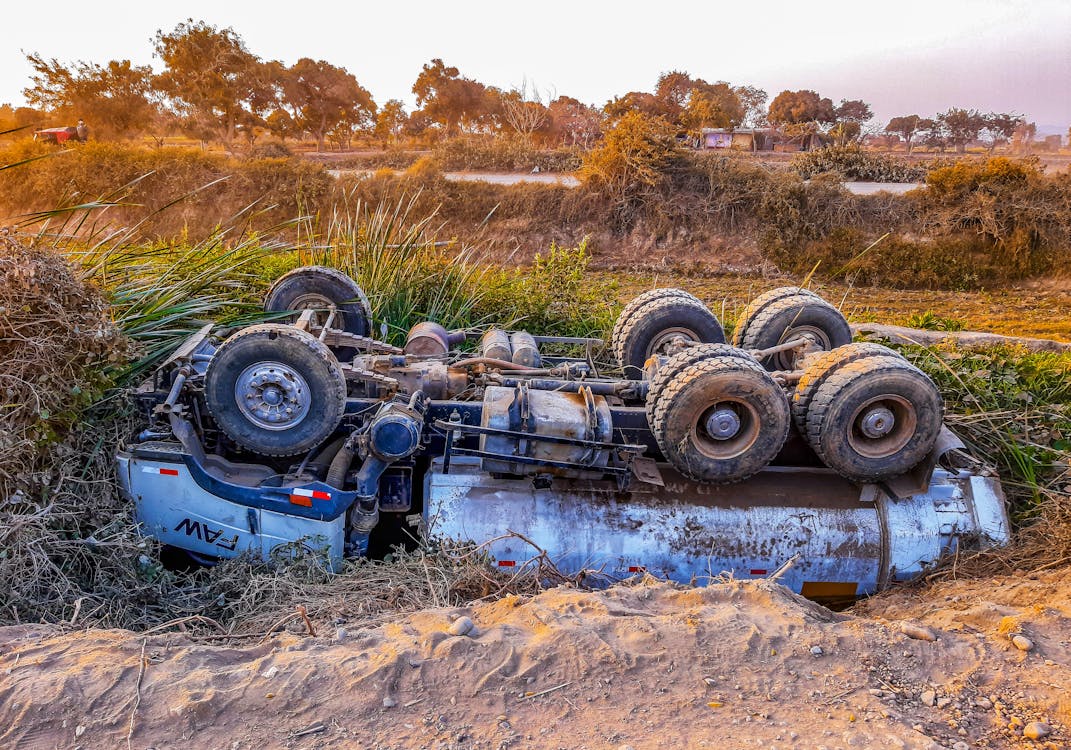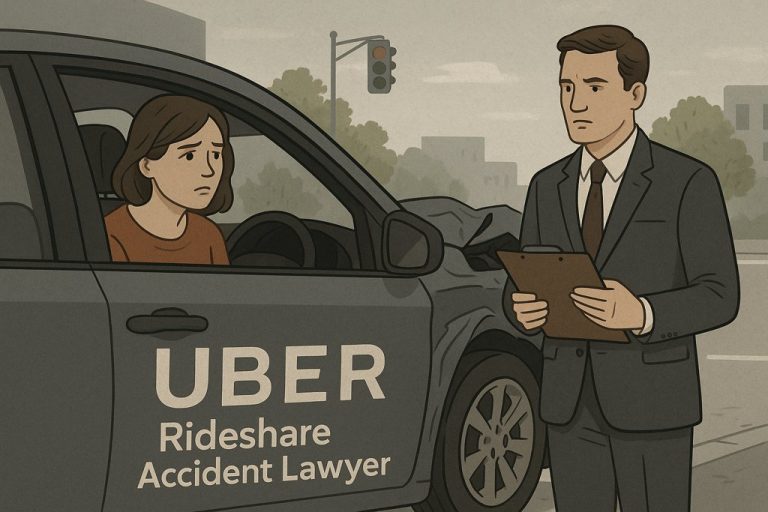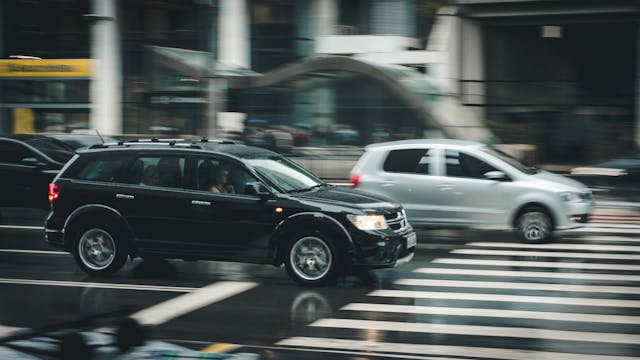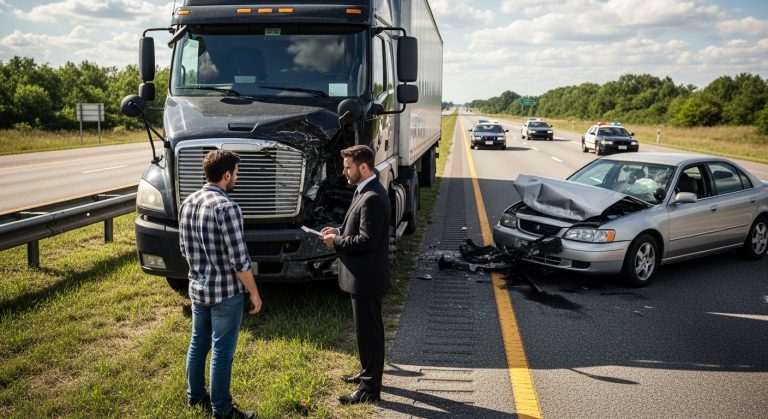Crashes involving commercial trucks often lead to serious consequences because of their massive size and legal complexity. These aren’t minor accidents, and dealing with the aftermath can feel incredibly stressful. Trucking companies are backed by experienced legal teams and strong insurance policies that prioritize their defense.
So, what can victims do to protect themselves during such a tough time? Taking the right steps early on helps injured individuals push back and protect their rights. Immediate actions after a truck accident can make or break the chance for fair compensation.
What steps should you take in the hours and days that follow the crash? In this article, we will explore how to protect your rights and navigate the unique challenges of truck accidents.
Identify Who Owns the Truck and Who Is Responsible
As per the most recent FMCSA data, 5,904 large trucks and buses were part of fatal crashes in 2021. The fatality rate per 100 million vehicle miles rose from 0.176 in 2020 to 0.191 in 2021.
Fatal crashes involving these vehicles went up by 17% between 2020 and 2021. Injury-related crashes showed some variation but overall climbed 6% from 2016 to 2021.
Truck accidents often involve more than just the driver behind the wheel. The truck could be owned by a separate logistics or shipping company. In some cases, the driver may be working as an independent contractor rather than a company employee.
Liability can also fall on the company responsible for loading the cargo. Maintenance issues may point to third-party service providers rather than the trucking firm. Sorting out who is accountable takes careful investigation and documentation.
Take clear photos of any company logos on the truck’s cab and trailer. Get the USDOT number from the side of the vehicle for future reference. This information helps determine who to include in a claim for damages.
How can a third-party service provider be responsible for a truck crash?
If third-party service providers are responsible for truck maintenance, they may share liability. For instance, if a third-party company failed to perform essential maintenance, its negligence could contribute to the accident. Gathering maintenance records will help identify whether a third party played a role in the crash.
Request to Preserve the Black Box and Maintenance Logs
Commercial trucks usually carry black boxes that record detailed operational and driving data. Otherwise known as event data recorders or EDRs, these devices capture speed, braking patterns, and driver activity before the crash.
Business Research Insights states that the push for better vehicle safety has increased the demand for accident analysis technologies. EDRs are key in understanding vehicle crash events and providing valuable insights.
These devices record crucial data like vehicle speed, brake status, and crash details. This data aids in accident reconstruction, helping identify causes and improving future safety measures.
Maintenance logs also hold valuable details about the truck’s repair history. These records can prove negligence if something was overlooked before the accident. Unfortunately, companies are allowed to delete or overwrite this data over time. Requesting preservation early ensures that nothing is destroyed or tampered with.
A formal letter should be sent demanding that all records be preserved immediately. These steps are often handled more effectively with legal guidance and support. Gathering this evidence can strengthen your case when negotiating a fair settlement.
How does gathering evidence affect your case outcome?
Collecting and preserving evidence like black box data and maintenance logs is essential for your case. It gives you a stronger advantage during settlement talks or in court if needed. Proper documentation increases the chances of securing fair compensation by proving negligence and supporting your claims against the responsible parties.
How Legal Experts Build a Strong Commercial Truck Case
After a truck crash, many assume an insurance claim will suffice. However, multiple companies and complex regulations quickly complicate the situation. Victims often don’t realize how many parties may be involved. Sorting through these layers requires someone well-versed in transportation law.
FindLaw mentions that transportation law is crucial when dealing with road accidents and vehicle-related incidents. Motor vehicle laws are primarily state-specific, but the DOT and federal legislation guide them. These regulations ensure vehicle manufacturers comply with safety standards set by the Federal Highway Administration and NHTSA.
This expertise comes from advanced legal training, not general experience alone. Attorneys handling serious truck accident cases typically hold a Juris Doctor degree.
According to Cleveland State University, a Juris Doctor (JD) degree prepares attorneys to tackle complex legal issues head-on. It equips them with the knowledge to navigate both state and federal regulations. JD programs focus on areas like liability, tort law, and civil litigation, which are essential for truck accident cases.
The rise of remote learning has caused many attorneys to pursue their JD degree online. These programs offer the same comprehensive education as conventional law schools, but through online learning. Pursuing JD degrees online enables students to manage their studies alongside work or family obligations.
Overall, this critical training enables attorneys to confront unsafe driving practices, examine auto accident records, and build a solid case for victims.
What legal training is needed for truck accident cases?
Attorneys handling truck accident cases require specialized training in both state and federal regulations. They must know transportation law, liability, and vehicle safety standards. This advanced education helps them navigate the complexities of truck accident cases and build a solid case for victims.
Don’t Trust the Trucking Company’s Insurance Investigators
Insurance investigators often reach out to crash victims soon after the collision. They may claim to be concerned, but their main goal is defense. These people work for the trucking company, not for your benefit.
They are skilled at getting you to say things that could harm your case. Even simple phrases can be twisted into admissions of fault or carelessness. Do not give a recorded statement or sign any documents without help.
Avoid discussing the crash in detail until you’ve spoken with an attorney. Insurance companies will act fast, often before victims understand their legal position. Protect yourself by staying quiet and consulting your lawyer about everything case-related.
Business Insider highlights that you should notify your insurance provider about the accident within 24 hours. If you’re seriously injured, report it as soon as you’re able to. Insurance rules vary depending on the state. In no-fault states, each driver’s policy covers their own injuries, while in at-fault states, the policy requires determining who was responsible.
Why is it important to speak with a lawyer right away after being involved in an accident?
Seeking legal advice early helps protect your rights and ensures evidence is kept intact. An attorney can navigate the complexities of the claims process and handle the trucking company’s insurance. Getting legal assistance early increases the likelihood of obtaining fair compensation for your injuries and losses.
After a commercial truck crash, quick and informed action is key to protecting your rights. Liability often involves more than just the driver, including companies and third-party service providers. A thorough investigation involves gathering black box data, maintenance logs, and additional evidence.
Trucking companies and insurance providers typically respond quickly and defend their interests vigorously. Victims require legal assistance with expertise in transportation law to manage these complicated cases effectively. Without the right guidance, it’s easy to miss crucial steps early in the process. Getting legal help early gives you a better shot at building a strong claim and getting fair compensation.




